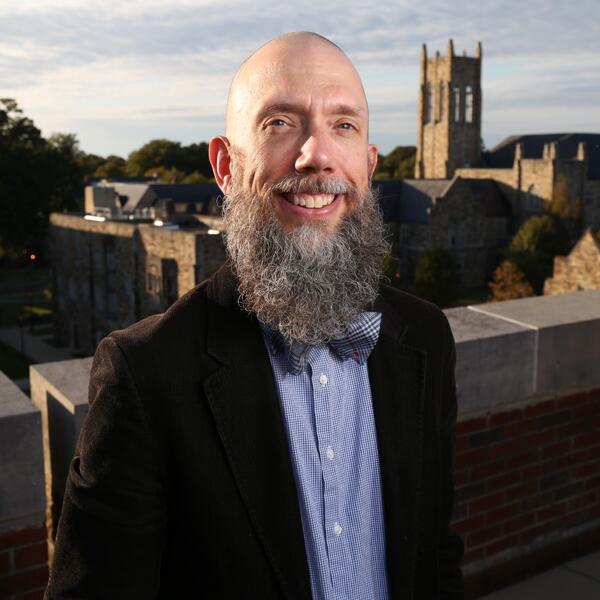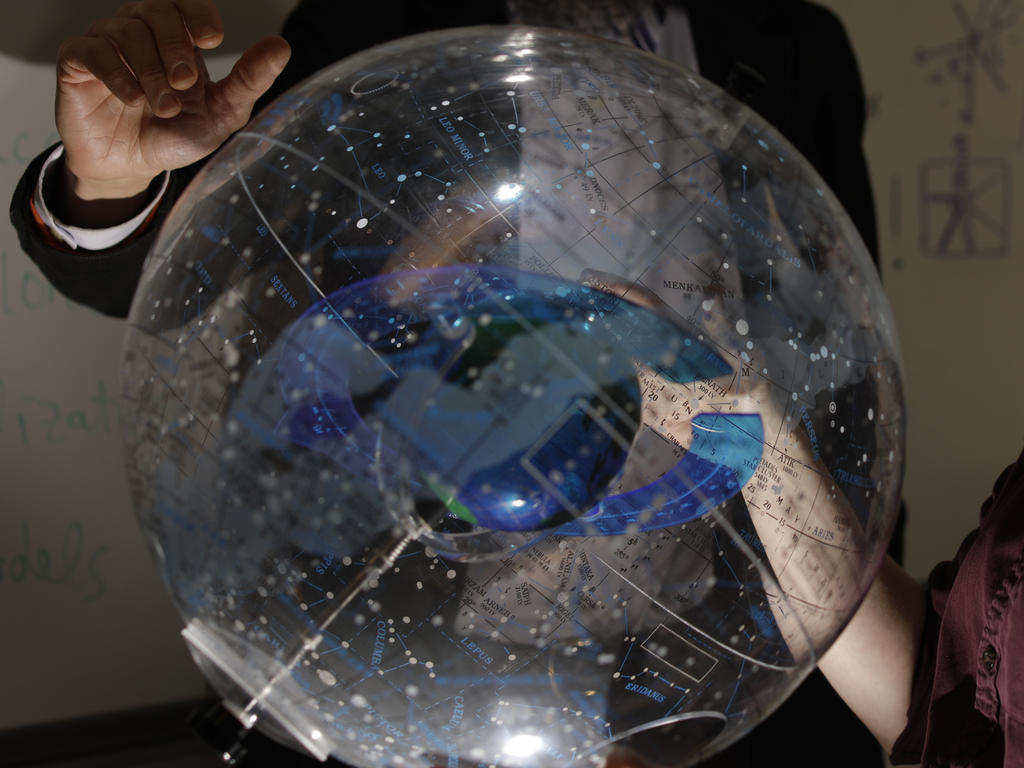As our college has moved to remote teaching, I have been delighted to discover the commitment and resilience of my students and colleagues.
I am an astrophysicist who teaches across the astronomy and physics curriculum. Early in my career, a friend plugged me into an amazing astronomy education community that assisted me in developing “active learning” pedagogies. Under the mentorship of my fellow teachers at Rhodes, active learning methods entered all of my courses. Over the last five years, I recrafted my classes to emphasize preparation outside of class (often aided by “screencast” videos, as well as electronic fora and quizzes), in order to leave plenty of time for active learning in class. My quantum mechanics students, for example, regularly did problems on whiteboards and participated in class discussions about difficult concepts.
But despite the possibilities that technology has opened up for “flipping the classroom” in this way, my goal has always been to increase interpersonal interaction inside the physical classroom. So the idea of teaching remotely and moving the classroom to what seems like an impersonal venue—on short notice—presented a challenge.
Yet, during the past few weeks, I have met the common humanity of my students and colleagues in ways that supersede the medium. My students pop into our Zoom sessions prepared and ready to learn, with good humor, punctuality, and a spirit of flexibility. In the “breakout rooms” that Zoom offers, they do the usual one-on-one discussions that we would normally complete in the classroom. The wall-size whiteboards in our classroom have turned into tiny whiteboards or pieces of paper held up to the webcam, or a virtual whiteboard from a tablet. Student-generated ideas have abounded on how to use the technology to replicate classroom techniques.
I chalk this up to imbibing the spirit of learning in our real-life interactions and to our students’ innate character and resilience. My colleagues, similarly, have risen to the occasion with vigor, fresh ideas, and a renewed desire to meet the needs of our students and each other.
I hope that the lesson from this time, once we emerge from the chrysalis of the Coronavirus, will be a fresh appreciation for the value of face-to-face interactions. In the meantime, the roots of our learning community are deep enough to sustain us even across physical distance.

Dr. David Rupke is an Associate Professor of Physics at Rhodes. His research lab students use spectroscopic data from some of the largest ground-based telescopes in the world (like the Gemini Observatory) and from space-based telescopes (like the Hubble Space Telescope and Spitzer Space Telescope) to probe galaxy evolution.
